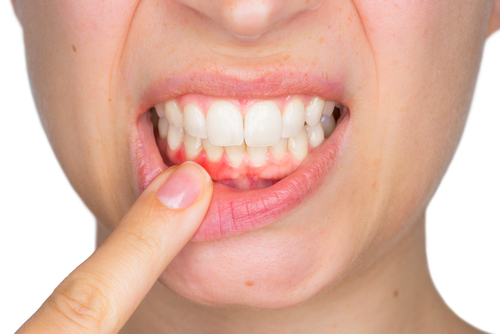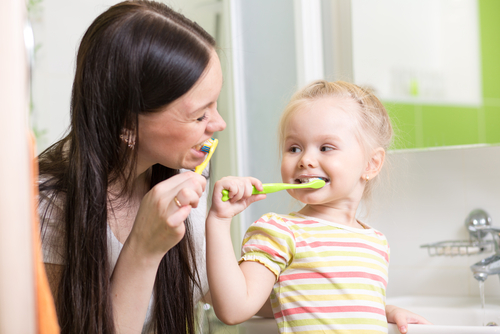Gingivitis is caused by the buildup of plaque on the teeth and gums. Plaque is a sticky, colourless film that coats the teeth and gums after eating and drinking that acts as a home for bacteria to grow. When there is too much bacteria in your mouth, it can cause an infection of the gums, known as gingivitis.
Continue readingWhy Dental Mouth Guards are Better than Chemist Bought Ones
There are three types of mouthguards: stock mouthguards, boil-and-bite mouthguards and custom-made mouthguards. When used in sports, they cushion the mouth and can reduce the severity of injury to the face and head. Studies show that up to 39% of dental injuries happen during sporting activities!
Continue reading15 Ways to Fix Bad Breath!
Halitosis or ‘bad breath’ can be caused by many different factors – some temporary and easy to fix, while others are more chronic and require greater intervention. To help you stay minty-fresh, here are some quick ways to fix bad breath!
Continue readingAll About Dentures
As we age, we can become more prone to losing our teeth. As we lose sensitivity, we’re less able to feel pain from tooth decay or gum disease, and often it’s too late to save a decaying tooth in an elderly patient. As a result, lost teeth can cause issues such as difficulty talking, eating and loss of confidence.
Continue readingHow to Care For Your Baby Teeth
Baby teeth are essential to care for, even though your baby’s first set of teeth will only be around for a few years.
Good oral hygiene in early childhood is essential for forming good habits, maintaining healthy gums and ensuring the health of their future permanent teeth.
When Do Teeth Develop?
Humans develop two sets of teeth.
- Primary teeth that begin to erupt when a baby is about 6 months old.
- Permanent teeth that begin to erupt when a child is about 6 years old.
The formation of both primary and permanent teeth begins before a baby is born although no teeth are visible at birth.
Primary teeth, also called baby or deciduous teeth, erupt over a period of about two years.
By the age of three, a child should have all 20 primary teeth.
The Importance Of Baby Teeth
Although baby teeth are only present for a few years, they play an important role.
They affect the structure and appearance of the face, they mark the space for permanent teeth and also contribute to the health of the permanent teeth.
If baby teeth decay, it may be painful for a child to eat which will affect their nutrition. Also, decay and bacteria can damage the permanent teeth below the gums.
To keep teeth healthy, don’t let a baby fall asleep with a bottle in their mouth. Milk contains sugars that can cause teeth to decay.
Even fruit juice without added sugar contains natural sugars that can lead to tooth decay.
How to Brush Baby Teeth
Teaching a child proper dental hygiene can begin as soon as the first tooth comes through the gums.
When the first teeth arrive, clean them with a soft cloth or a soft, small toothbrush. Water is all that’s needed to clean teeth for the first several months. Gums can be gently wiped with a soft cloth.
By the time the child is 18 months old, a small amount of non-fluoride or low-fluoride toothpaste can be used.
Clean the front and back of each tooth twice a day.
First Dental Visit
The first visit to a dentist should occur when a child’s first tooth erupts or around the age of 1.
The dentist will look for signs of tooth decay, evaluate bite and discuss overall oral health.
The dentist will also advise parents about the best time to introduce fluoridated toothpaste as part of a toddler’s dental hygiene habit and whether other fluoride treatments are needed.
The Importance of Nutrition
A well-rounded diet provides essential vitamins and minerals for bone development, formation of enamel on permanent teeth, coordination and cognitive development.
By introducing healthy foods at an early age, children learn good nutrition naturally.
Instead of sugary drinks or fruit juices, give toddlers plain water. Most tap water contains fluoride but many bottled waters do not.
At Underwood Dental Care, we strive to make every child’s visit to the dentist enjoyable, friendly and pain-free. Call us today to book your child’s next dental appointment.





